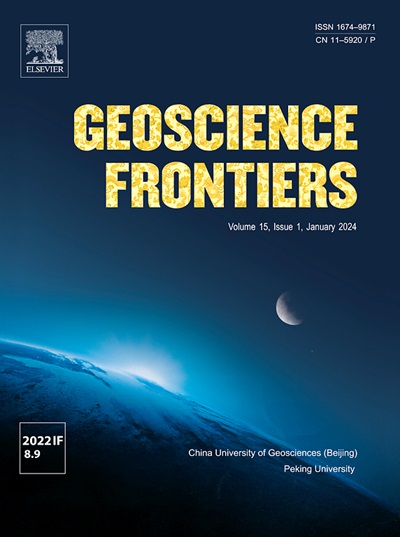Complex cross-regional landslide susceptibility mapping by multi-source domain transfer learning
IF 8.9
1区 地球科学
Q1 GEOSCIENCES, MULTIDISCIPLINARY
引用次数: 0
Abstract
Landslide susceptibility evaluation plays an important role in disaster prevention and reduction. Feature-based transfer learning (TL) is an effective method for solving landslide susceptibility mapping (LSM) in target regions with no available samples. However, as the study area expands, the distribution of landslide types and triggering mechanisms becomes more diverse, leading to performance degradation in models relying on landslide evaluation knowledge from a single source domain due to domain feature shift. To address this, this study proposes a Multi-source Domain Adaptation Convolutional Neural Network (MDACNN), which combines the landslide prediction knowledge learned from two source domains to perform cross-regional LSM in complex large-scale areas. The method is validated through case studies in three regions located in southeastern coastal China and compared with single-source domain TL models (TCA-based models). The results demonstrate that MDACNN effectively integrates transfer knowledge from multiple source domains to learn diverse landslide-triggering mechanisms, thereby significantly reducing prediction bias inherent to single-source domain TL models, achieving an average improvement of 16.58% across all metrics. Moreover, the landslide susceptibility maps generated by MDACNN accurately quantify the spatial distribution of landslide risks in the target area, providing a powerful scientific and technological tool for landslide disaster management and prevention.

基于多源域迁移学习的复杂跨区域滑坡易感性制图
滑坡易感性评价在防灾减灾中具有重要作用。基于特征的迁移学习(TL)是求解无样本目标区域滑坡敏感性映射(LSM)的有效方法。然而,随着研究区域的扩大,滑坡类型和触发机制的分布变得更加多样化,导致依赖单一来源领域的滑坡评价知识的模型由于领域特征的转移而性能下降。为了解决这一问题,本研究提出了一种多源域自适应卷积神经网络(MDACNN),该网络将从两个源域学习到的滑坡预测知识结合起来,在复杂的大范围区域进行跨区域的LSM。以中国东南沿海3个地区为例,对该方法进行了验证,并与基于tca的单源域TL模型进行了比较。结果表明,MDACNN有效地集成了来自多个源域的迁移知识,以学习不同的滑坡触发机制,从而显著降低了单源域TL模型固有的预测偏差,所有指标的平均改进率为16.58%。此外,MDACNN生成的滑坡易感性图准确量化了目标区滑坡风险的空间分布,为滑坡灾害管理和预防提供了有力的科技工具。
本文章由计算机程序翻译,如有差异,请以英文原文为准。
求助全文
约1分钟内获得全文
求助全文
来源期刊

Geoscience frontiers
Earth and Planetary Sciences-General Earth and Planetary Sciences
CiteScore
17.80
自引率
3.40%
发文量
147
审稿时长
35 days
期刊介绍:
Geoscience Frontiers (GSF) is the Journal of China University of Geosciences (Beijing) and Peking University. It publishes peer-reviewed research articles and reviews in interdisciplinary fields of Earth and Planetary Sciences. GSF covers various research areas including petrology and geochemistry, lithospheric architecture and mantle dynamics, global tectonics, economic geology and fuel exploration, geophysics, stratigraphy and paleontology, environmental and engineering geology, astrogeology, and the nexus of resources-energy-emissions-climate under Sustainable Development Goals. The journal aims to bridge innovative, provocative, and challenging concepts and models in these fields, providing insights on correlations and evolution.
 求助内容:
求助内容: 应助结果提醒方式:
应助结果提醒方式:


